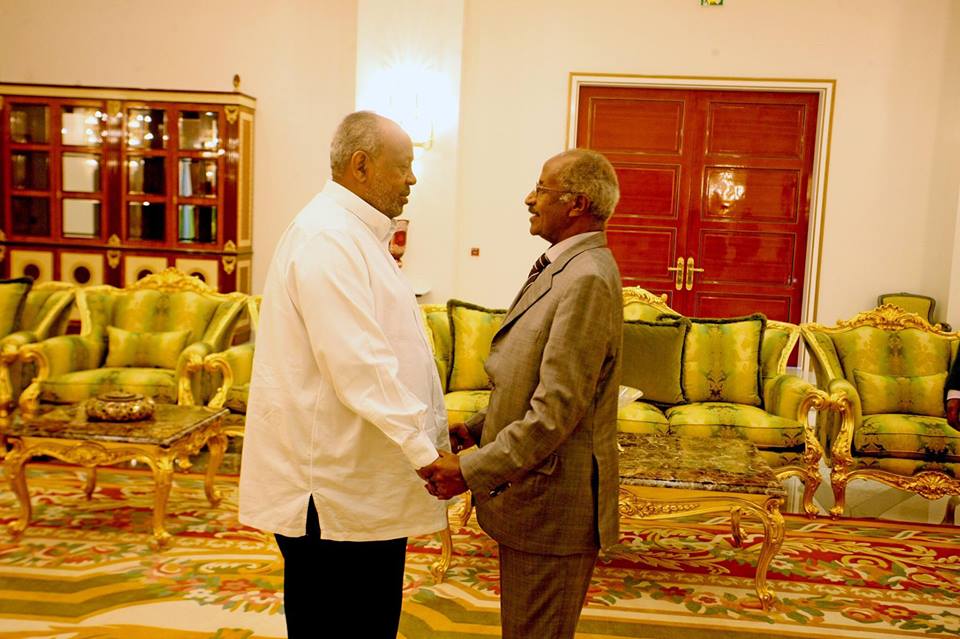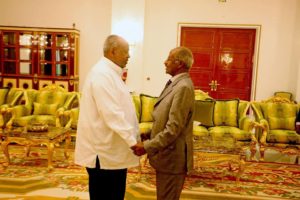The Red Sea states of Eritrea and Djibouti agreed to normalize relations, a further sign of what Eritrea’s president called a “season of peace” in the strategically important Horn of Africa region that has been riven by rivalries.
The agreement may draw a line under a border dispute between the countries whose troops clashed in 2008 and may help once-isolated Eritrea secure the removal of near-decade-old United Nations sanctions. It’s the latest movement toward harmony in an area that’s on a key shipping route to the Suez Canal, following an historic peace deal between Eritrea and regional giant Ethiopia in July that’s ending 20 years of tensions.
“The Horn of Africa is experiencing a rare extraordinary period in terms of peace and stability building,” Ilyas Dawaleh, chairman of Djibouti’s ruling party, said by email from China where he was attending a Sino-African summit. “Our people, our region, our children deserve a peaceful, prosperous, interconnected and integrated region.”
The agreement was struck this week when delegations from Ethiopia, Somalia and Eritrea visited Djibouti, a country about the size of New Jersey state that’s home to the only permanent U.S. military base in Africa and China’s first such overseas facility. The Djibouti development was described by Eritrea’s information minister as the first initiative of a pledge by Ethiopia, Eritrea, and Somalia to work “in coordination to promote regional peace and security.”
The shakeup in regional relations follows the coming to power of a new, reformist-minded premier in Ethiopia, which has Africa’s fastest-growing economy and its second-largest population, and could have far-reaching consequences for trade, infrastructure and security.
A territorial dispute between Djibouti and Eritrea led to several days of fighting in June 2008. Qatar, which has been mediating the dispute since 2010, withdrew its observer forces last year after Djibouti downgraded its diplomatic ties with Doha as it was mired in a dispute with Saudi Arabia and other Arab countries.
Eritrean President Isaias Afwerki has greeted his Djiboutian counterpart, Ismail Omar Guelleh, and hailed a “season of peace” in the Horn of Africa that “should be inclusive to all,” Eritrea’s information minister said on Twitter.
The UN Security Council is due this year to vote on whether to extend sanctions against Eritrea, first imposed in 2009 on allegations it supported Islamist rebels in Somalia. Ethiopia and Russia have pledged support for a sanctions lift. Eritrea describes the charges as baseless and politically motivated.
The Security Council has previously demanded that Eritrea disclose information about Djiboutian fighters missing in action from the 2008 clashes over the Ras Doumeira peninsula and adjacent territory, who are presumed prisoners of war. UN monitors said last year they found evidence of continued Eritrean support to armed groups active in Djibouti and Ethiopia.
Stripes







































